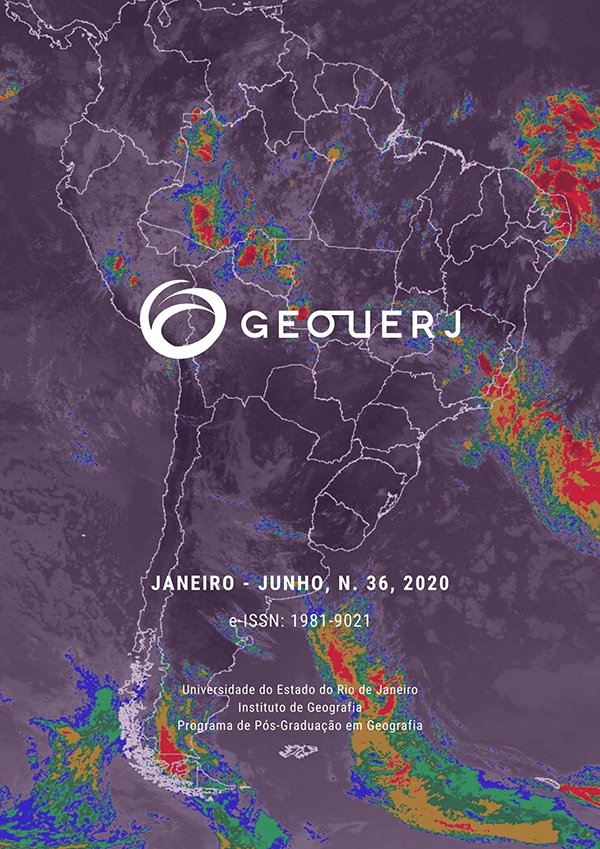TERRITÓRIO, DESENVOLVIMENTO E ASSOCIATIVISMO: UMA ANÁLISE SOBRE A REGIÃO DO DOURO, PORTUGAL
DOI:
https://doi.org/10.12957/geouerj.2020.35802Palavras-chave:
Território, Região do Douro, Portugal, Desenvolvimento local, Ações coletivasResumo
O território é formado por um conjunto de elementos, iniciativas e relações que marcam a relação sociedade e natureza. Nesse sentido, existem diversos territórios, entre eles os territórios vitícolas, cuja vinha e vinho são os pontos centrais da articulação territorial. No território do Vinho do Douro, Região Demarcada do Douro, norte de Portugal, a vitivinicultura faz parte da história, paisagem, cultura e economia. Porém, para a manutenção do desenvolvimento local deste território são realizadas ações coletivas, que atuam na valorização local, no fortalecimento do turismo, especialmente ligado ao vinho, na inovação vitivinícola e na criação de novas oportunidades comerciais para os produtos locais. Assim sendo, este trabalhodiscorre sobre o território e o desenvolvimento rural,abordando especificamente o papel das associações atuantes no Território do Douro em busca do desenvolvimento local.
Downloads
Downloads
Publicado
Como Citar
Edição
Seção
Licença
Os Direitos Autorais dos artigos publicados na Revista Geo UERJ pertencem aos seus respectivos autores, com os direitos de primeira publicação cedidos à Revista. Toda vez que um artigo for citado, replicado em repositórios institucionais e/ou páginas pessoais ou profissionais, deve-se apresentar um link para o artigo disponível no site da Geo UERJ.

Os trabalhos publicados estão simultaneamente licenciados com uma Licença Commons BY-NC-SA 4.0.


